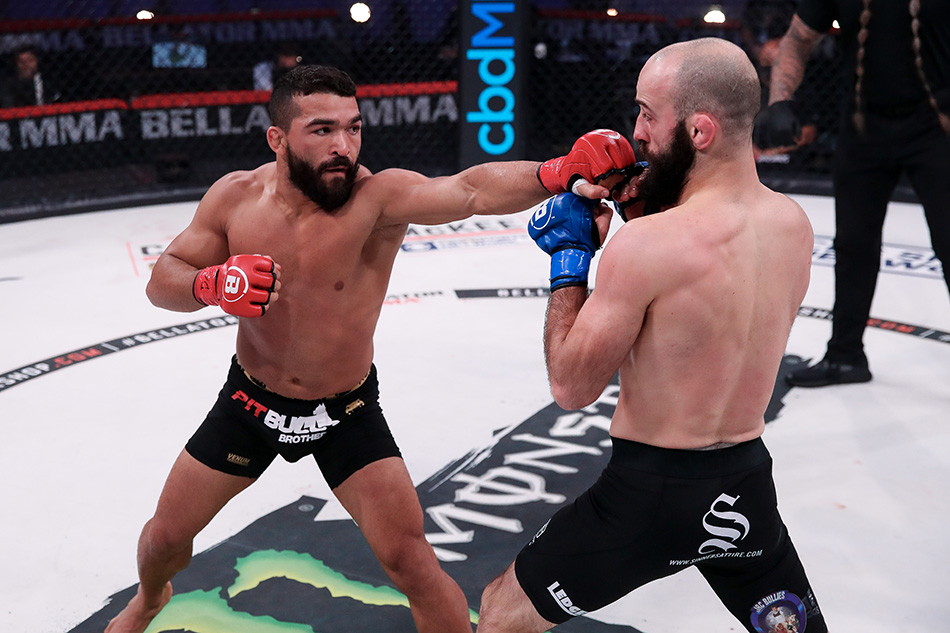Bellator’s Scott Coker Looks to Strike a Blow with Showtime Deal
MMA promotion plans for pay-per-view caliber fights on premium net

The smarter way to stay on top of broadcasting and cable industry. Sign up below
You are now subscribed
Your newsletter sign-up was successful
Bellator MMA is betting that its new Showtime television deal will give it a fighting chance at drawing in combat sports fans.
The 13-year-old Bellator — after working through several TV deals over the past decade with distributors such as as Spike TV (now Paramount Network), DAZN and CBS Sports Network — has secured a multiyear deal with Showtime that calls for at least two live monthly fight cards to air on the premium channel.

Under the tutelage of president Scott Coker, ViacomCBS-owned Bellator has solidified its position as the second-largest mixed martial arts promotion behind UFC. The organization launched its Showtime deal last month with three consecutive weeks of live telecasts featuring such popular fighters as Patrício “Pitbull” Freire, Ryan Bader and Lyoto Machida.
Coker spoke with B+C/Multichannel News about Bellator’s TV prospects, as well as how it worked through the pandemic. He also looked ahead at the future of televised sports during the interview, which was edited for space and clarity.
B+C: How big is the Showtime deal, especially coming out of the pandemic?
Scott Coker: We’re really excited to have a home. It’s been like a family reunion — I started my MMA career on TV at Showtime back in 2007. It’s been a good trip back down memory lane, but now we’re coming in with probably the greatest roster in the history of the company. There’s a lot of great things happening for us.
B+C: What does Showtime bring that’s different from other networks?
The smarter way to stay on top of broadcasting and cable industry. Sign up below
SC: When I think about Showtime, I think of premium networks, and I think of all the great fights we’ve watched over the years, whether it was from the Mike Tyson era of the ’80s to Floyd Mayweather. Showtime also had Strikeforce, the MMA company that I used to own before I sold to the UFC. Showtime brings continuity and consistency of our product to our fans, and that’s going to provide a good piece of business for us. Fans know that twice a month, they’ll be able to come to Showtime and watch Bellator MMA. We’re not asking subscribers to add another $69 to $89 to their cable bill to watch our product. For the fans, it’s a great value.
B+C: Is there potential for pay-per-view events?
SC: We talked about that, but right now the philosophy is to put all of our quality fights on Showtime. Subscribers to Showtime are not only getting 40-something [boxing and MMA] fights a year, but also the entertainment shows that the network is noted for. Those big fights that should be on pay-per-view are going to be offered free on Showtime.
B+C: How were you able to navigate through the pandemic last year to bring Bellator to this point?
SC: We decided to come back last July when we felt it was safe. We got signoff from our corporate owner Viacom to create a bubble at [Connecticut’s] Mohegan Sun and to make sure that we were under the strictest guidelines possible. I think we accomplished that. I think after almost 12,000 tests now at the Mohegan Sun we’ve had a 0.05% positivity rate, which includes the officials, the fighters, the staff and the TV production staff. It was a different experience for everyone, including me.
Now I think people can see the light at the end of the tunnel. We’re going to continue with this protocol until Viacom says we can make some changes: start opening up and traveling and doing flights in different arenas and buildings. We looked forward to it, but until they give us a green light, we’re going to stay inside and operate inside this bubble.
B+C: Do you think the interruptions experienced during the pandemic have enhanced viewer interest for live sports, particularly now as fans begin to return to arenas?
SC: The reason why sports license fees are through the roof is because it’s live and people can consume it when it’s happening. I can’t wait to go back to a baseball game. I’m a big [Golden State] Warriors fan — I can’t wait to see them play. People are going to continue to sit at home and watch these events however they consume them because people love sports. When they get the green light to start going back to venues, I think it’s just going to heighten the electricity of sports events. This is how important sports is to our culture: when we can all finally walk into a baseball stadium or a fight is packed to the rafters, that’s when I know that things have turned the corner and things are OK.
R. Thomas Umstead serves as senior content producer, programming for Multichannel News, Broadcasting + Cable and Next TV. During his more than 30-year career as a print and online journalist, Umstead has written articles on a variety of subjects ranging from TV technology, marketing and sports production to content distribution and development. He has provided expert commentary on television issues and trends for such TV, print, radio and streaming outlets as Fox News, CNBC, the Today show, USA Today, The New York Times and National Public Radio. Umstead has also filmed, produced and edited more than 100 original video interviews, profiles and news reports featuring key cable television executives as well as entertainers and celebrity personalities.

